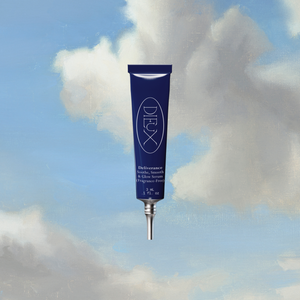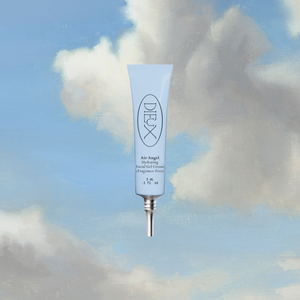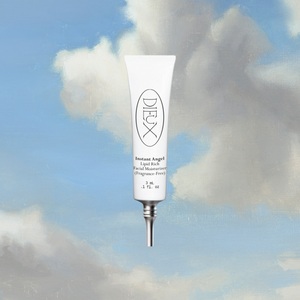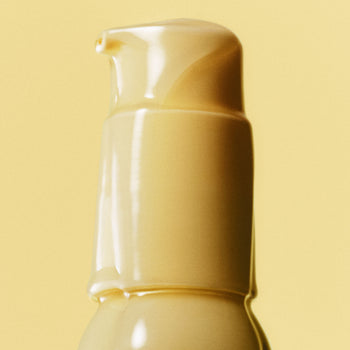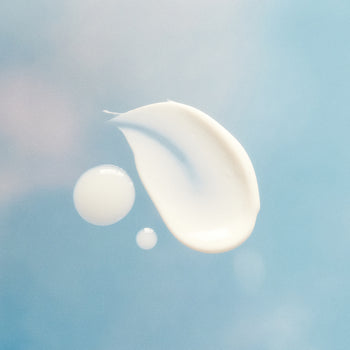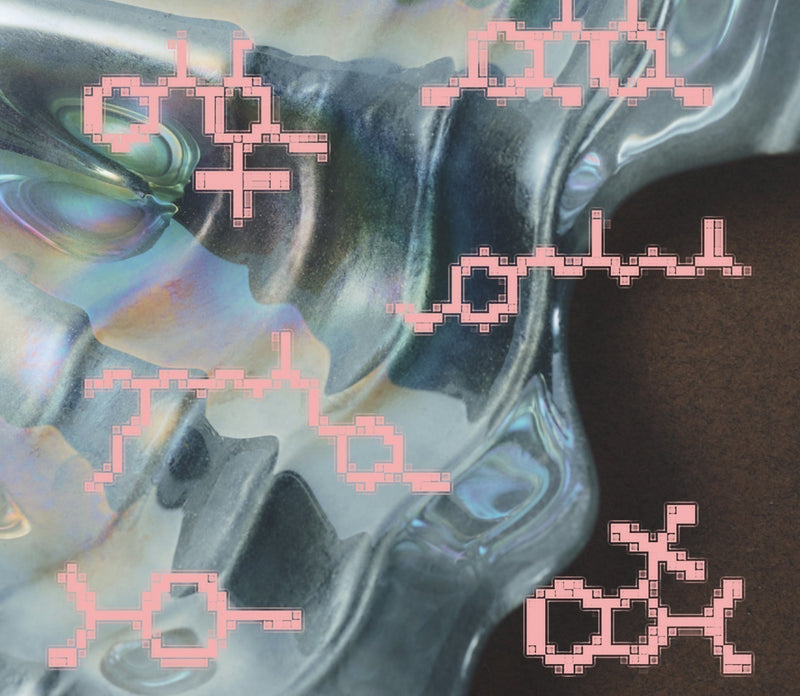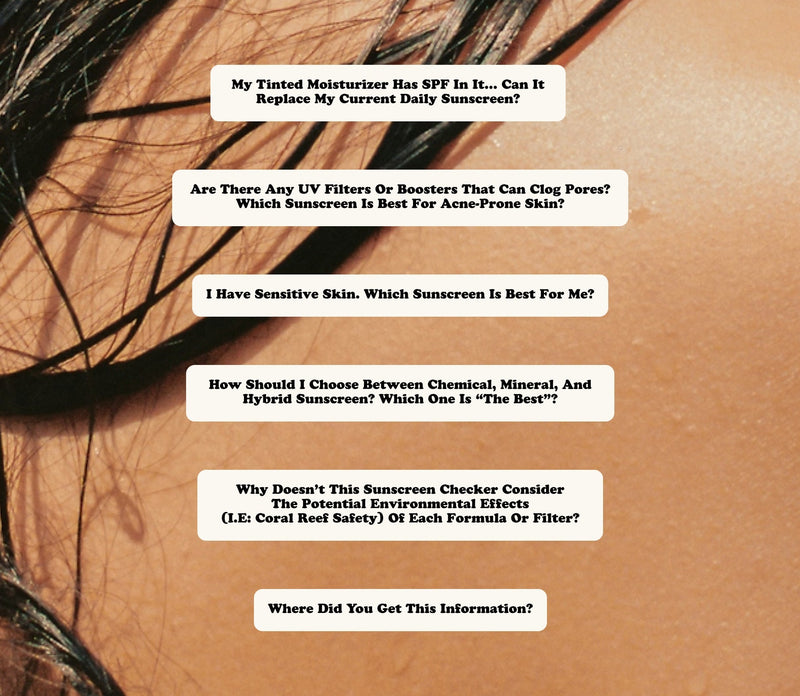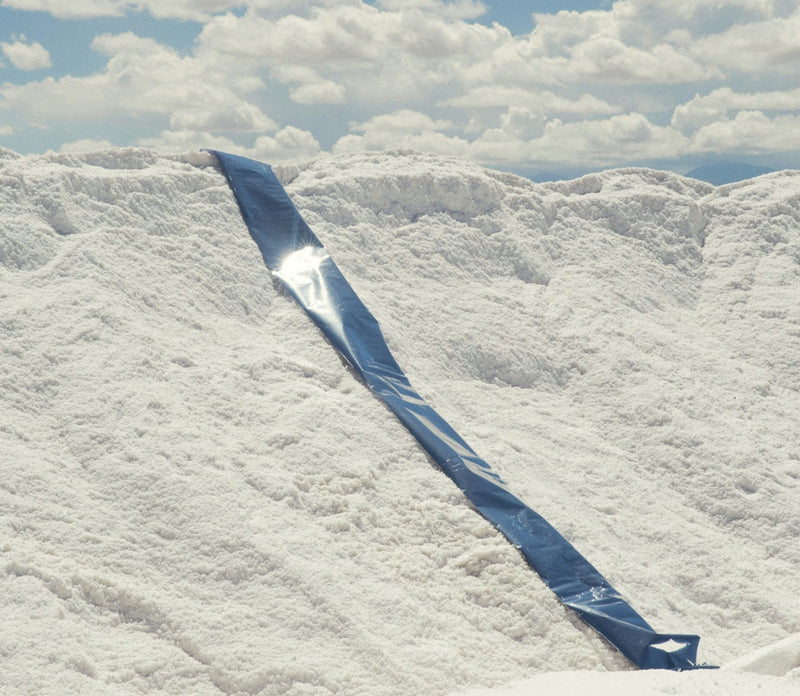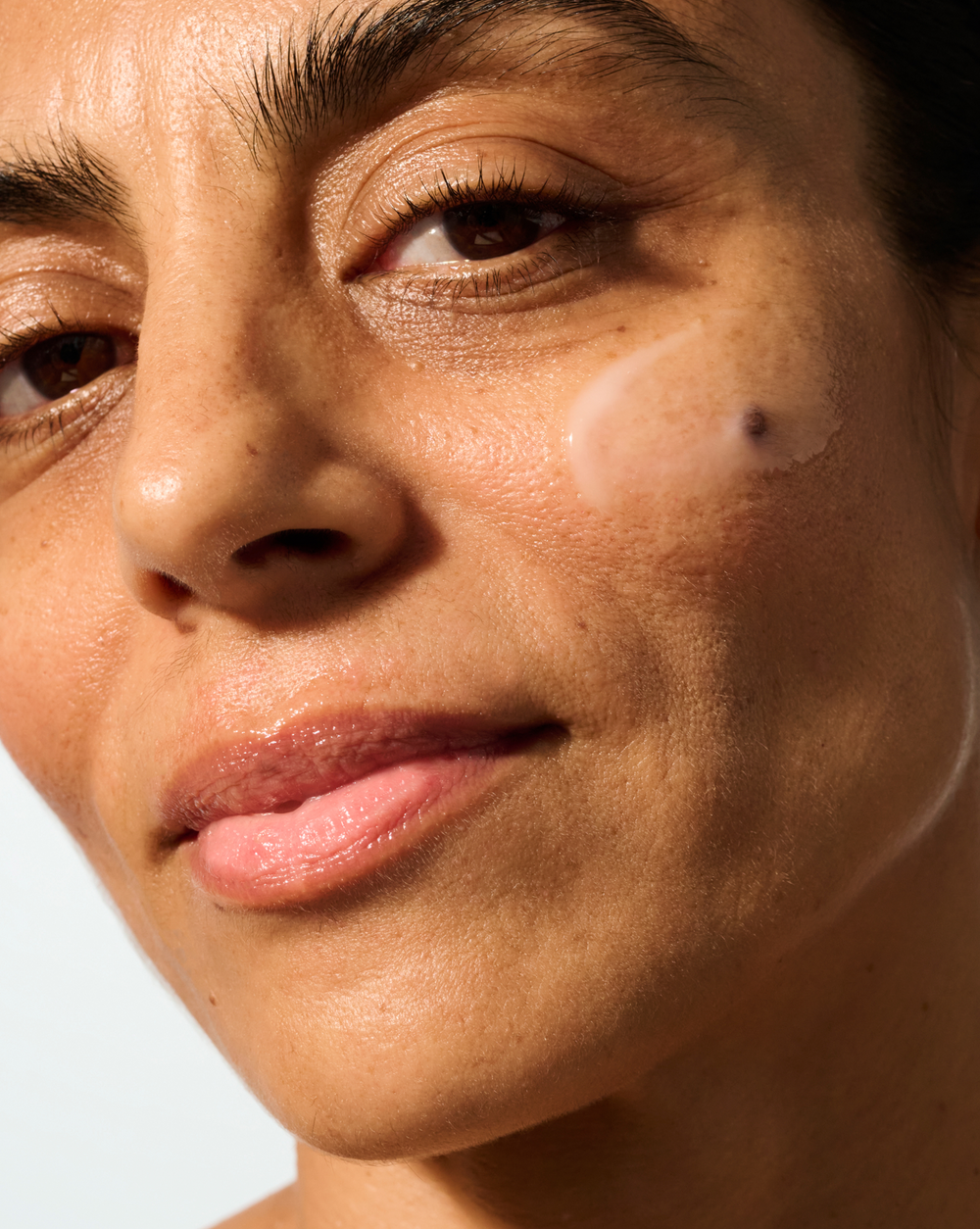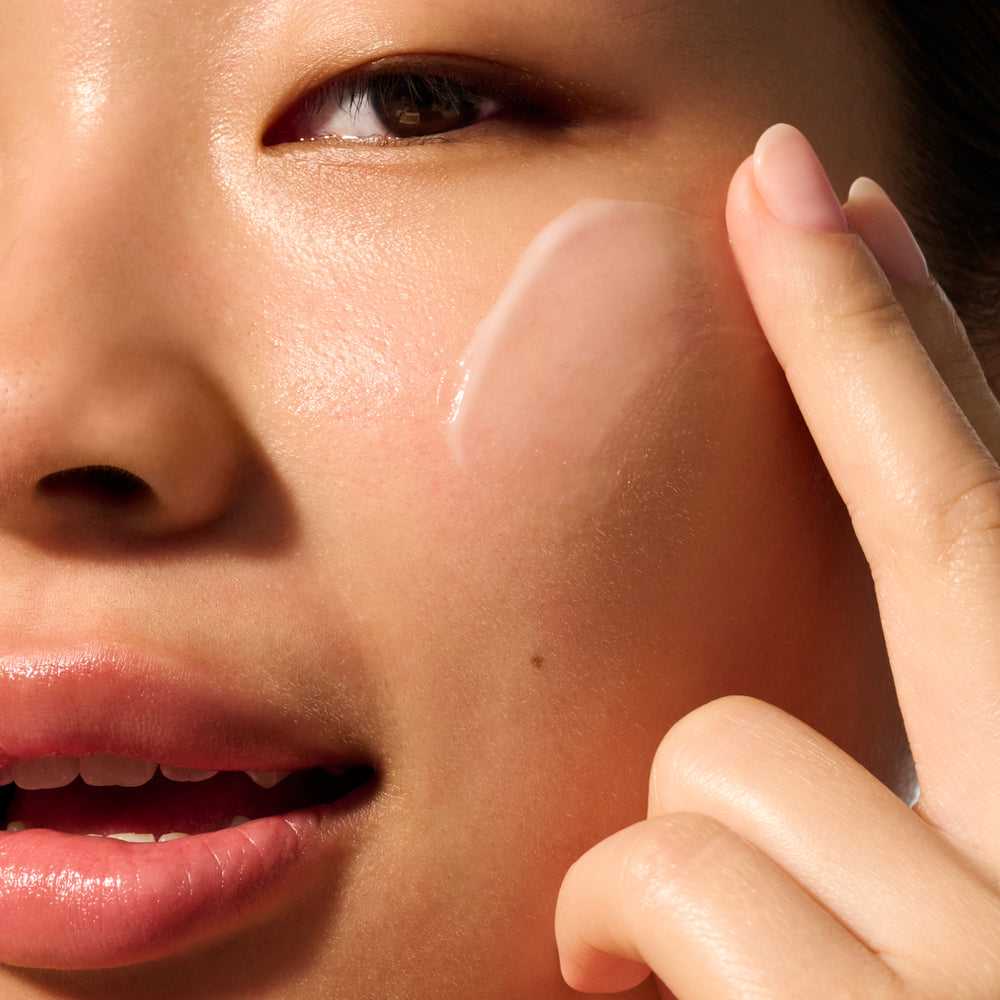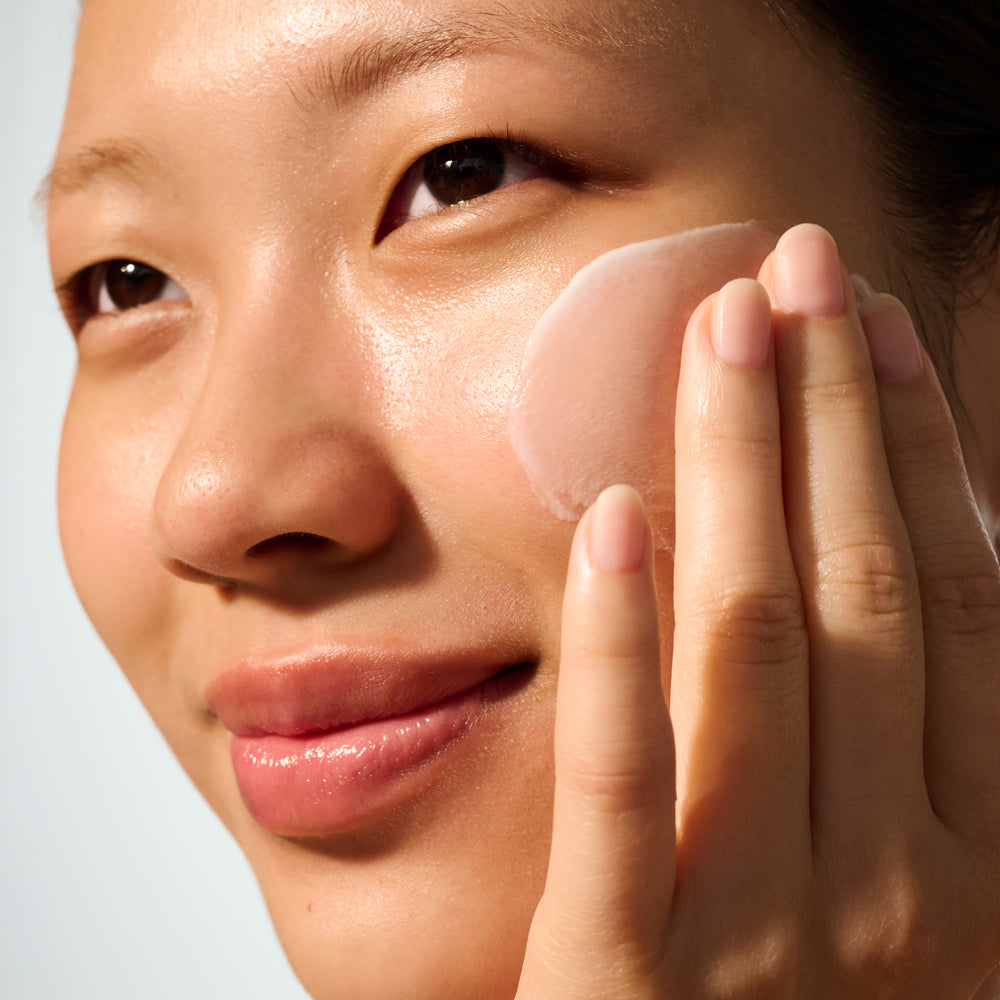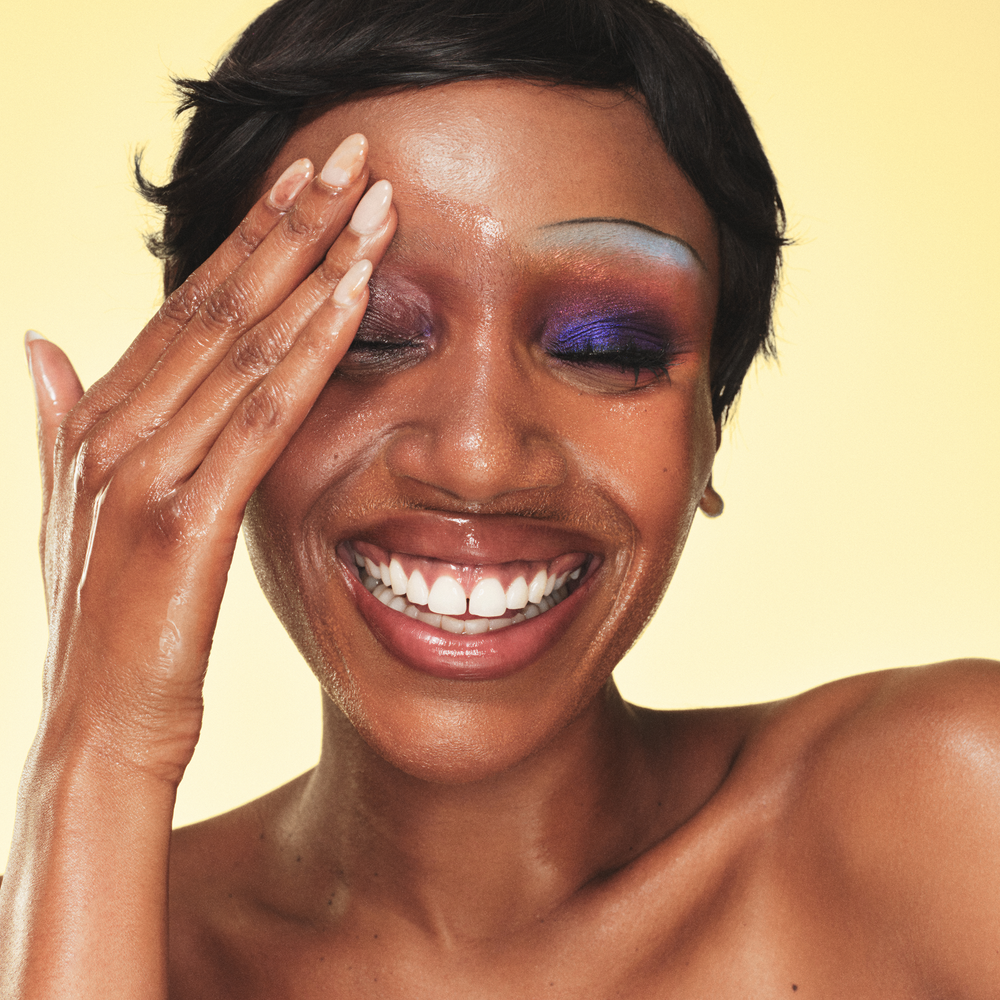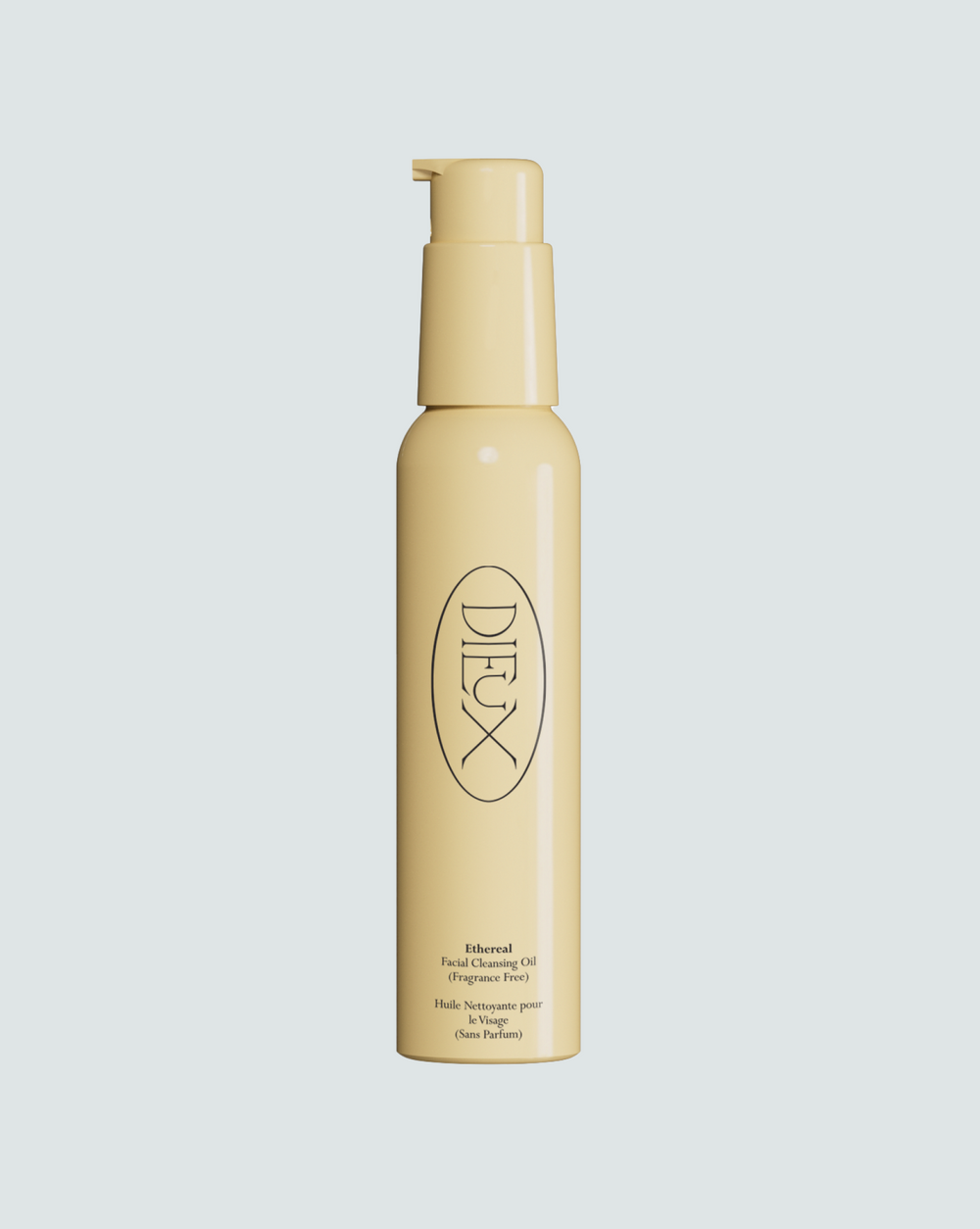Chemical Filters
Also known as organic filters, these filters are made up of organic (carbon-based) compounds that protect your skin by absorbing UV radiation, very similar to how mineral filters work.
Rather than UV rays damaging your skin, that energy is absorbed by the chemical filter, converted into a tiny amount of heat, stopping the damage before it hits your skin. This prevents UV rays from penetrating deeper into the skin and causing DNA mutations, sunburn, long-term damage, hyperpigmentation, and more.
Different chemical filters protect against different types of UV rays, so it's important to use a well-formulated sunscreen that provides broad-spectrum protection (AKA protection from both UVA and UVB rays).
An important note: While mineral filters (zinc oxide and titanium dioxide) are the only two UV filters currently classified as GRASE (Generally Recognized As Safe and Effective) by the FDA, that doesn’t mean chemical filters are unsafe. Content that tells you otherwise is misinformation and dangerous as it promotes conspiratorial thinking.
Bottom line: The safest sunscreen is the one you use daily and generously. Always choose one with SPF 30 or higher and broad-spectrum protection.
Examples: Avobenzone, Octocrylene, Homosalate
